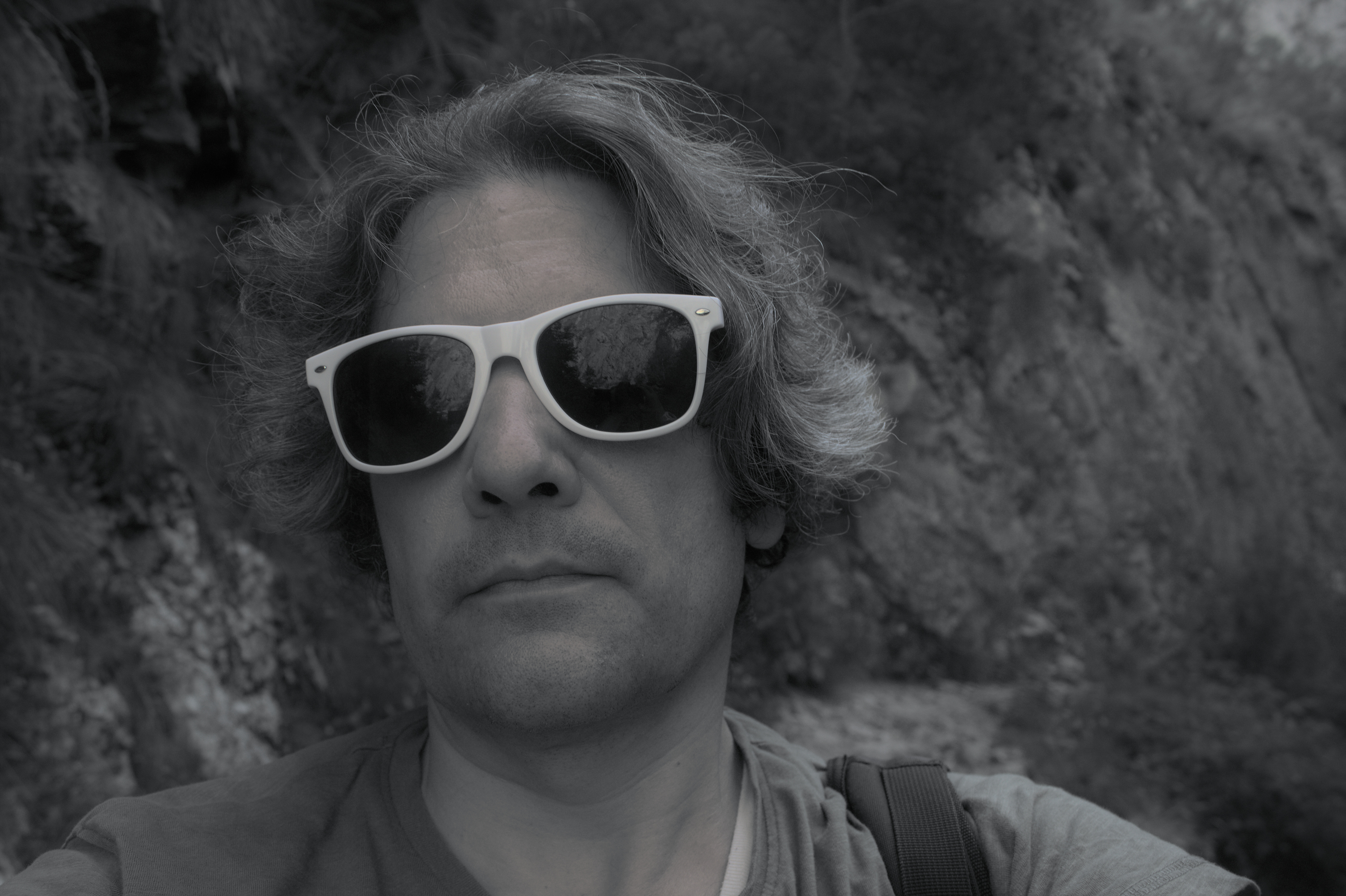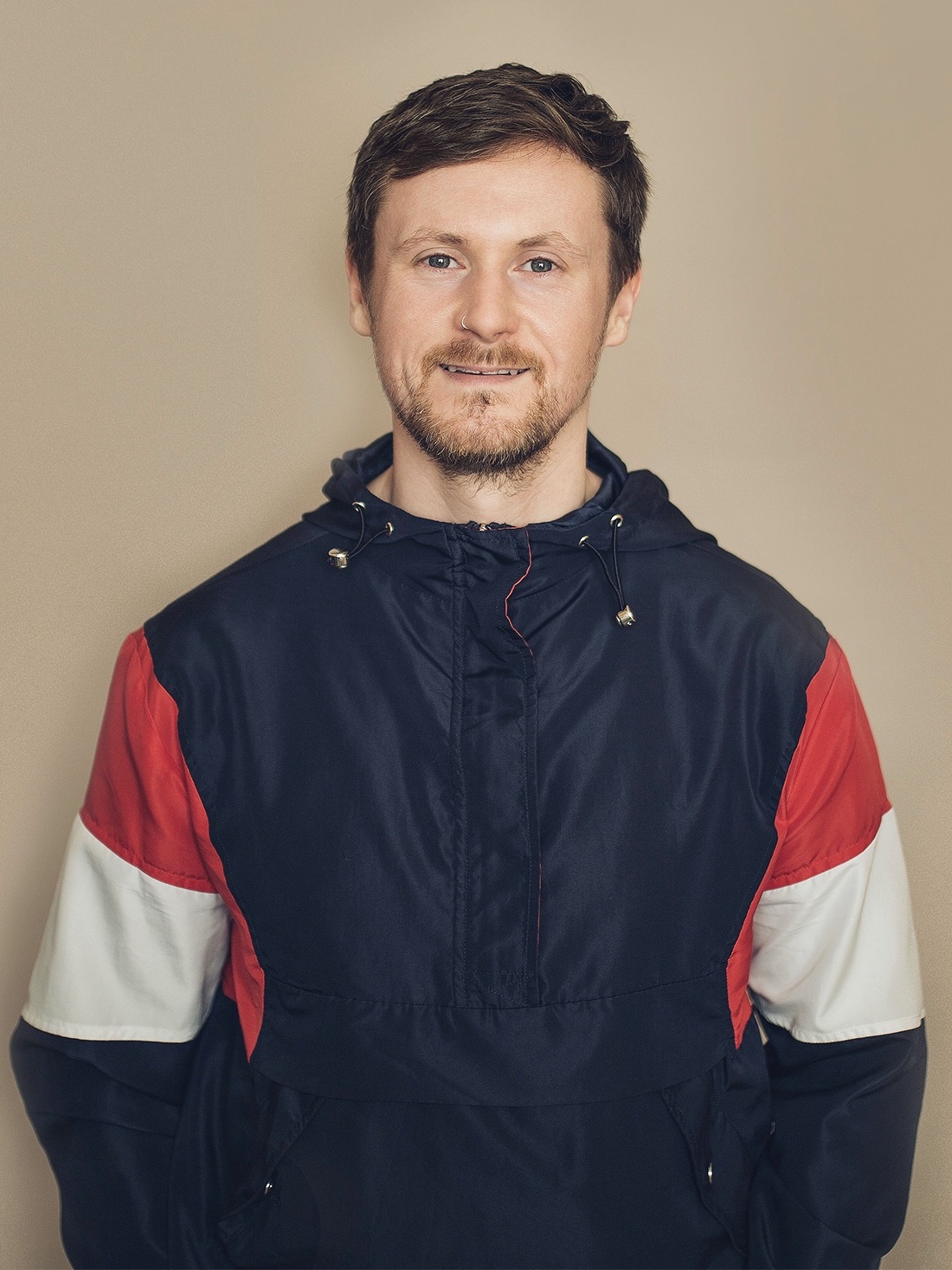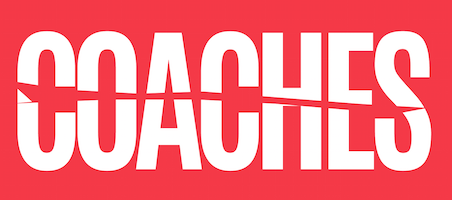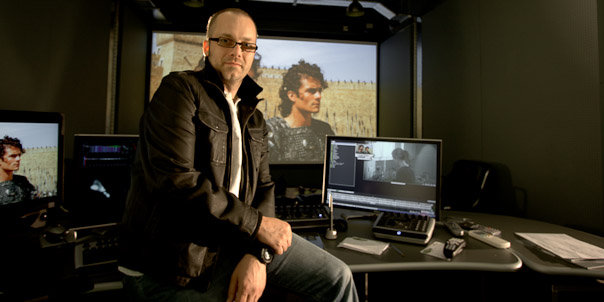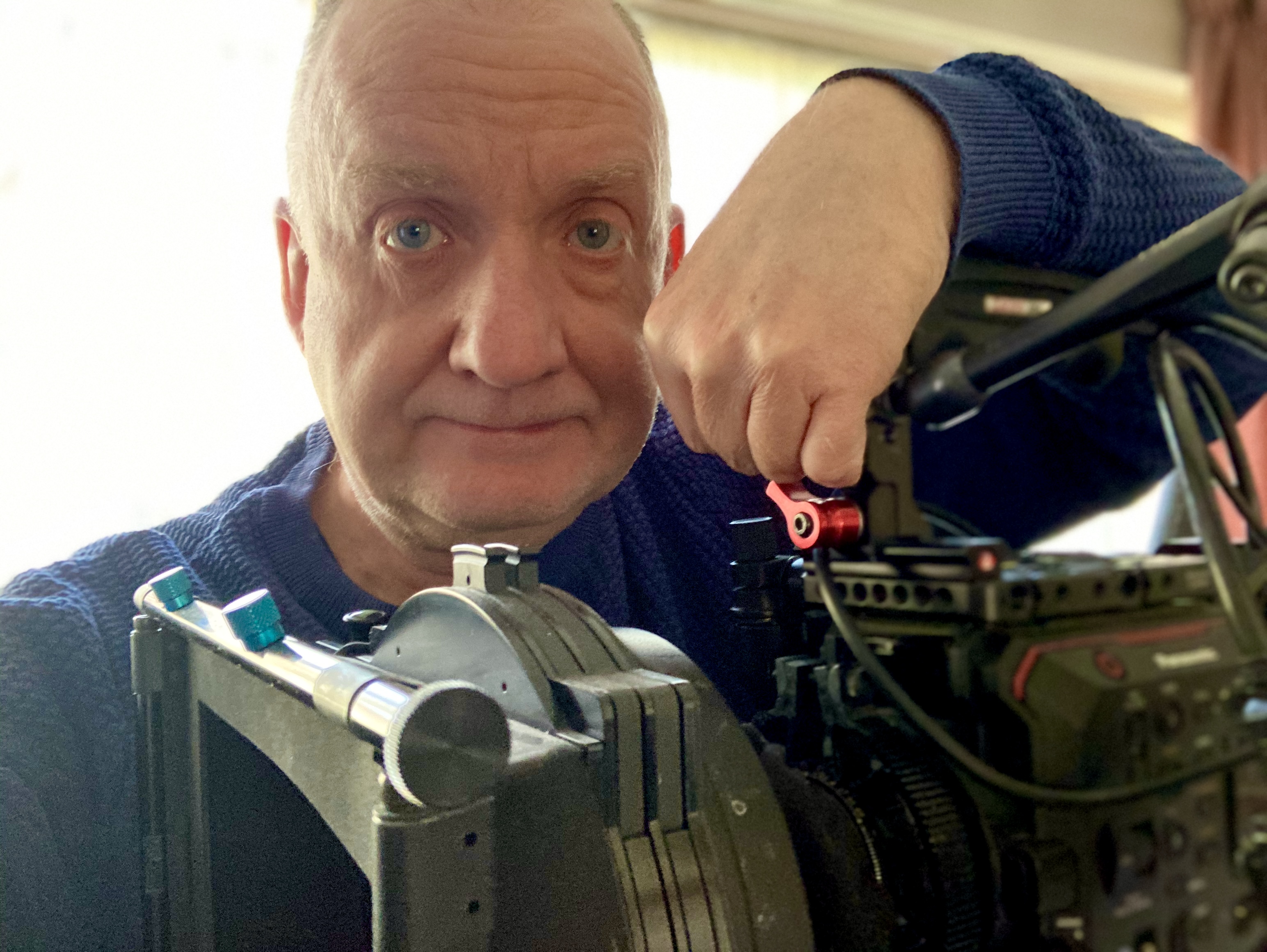ASK & DISCUSS
INDEXWhat's the difference between shorts and features?
7 years, 6 months ago - Vasco de Sousa
Okay, obviously, features are longer. And, if you've read my blog, you'll see I have some opinions on audience expectations and content.
But, reading this list, I see two important differences: time and money.
Time: With a short, most people on this list seem confident that they can shoot it in a day, whether it's five minutes or ten of total playing time. Perhaps that's how long they have the location for, I don't know. With a feature, asking that a script can be shot in 27 days is code for "very quick" and "very low budget." Now, if you do the math, considering that microbudget features tend to be on the short side, that's usually less than four minutes playing time shot per day, so features seem to take longer to shoot per minute of final playing time.
Money: With shorts, a lot of people on this list seem to expect a budget of 3k. When asked how much you should pay a director, or crew, for a short film, many people said they would work for free. With a feature, most of those same people expect to get paid, and most people on this list seem to budget their projects at around 300k, or 100 times as much, even if it's only ten times as long. (Even at 300k, that's microbudget by most standards. I'd like to know where that number comes from, because it pops up so often.) Also, when someone asks you to work for free on a feature, you're probably insulted, right?
money 2: Most people on this list seem to think that shorts are not commercial. This is a big change from 19 years ago or so, when I said shorts were not commercial and the chorus disagreed with me. At the time, I only wrote feature length scripts and saw writing any more shorts as a waste of time. I had written shorts, but only for friends I'd known from high school. (I've since written quite a few shorts because I had to for film class, because I enjoy making short skits and animations that make people laugh, and because I think I may have found the market for my particular style of short scripts.)
Now, all that seems clear enough. Features are obviously more complicated, so we naturally allow for that, even if we still might have unrealistic expectations the first time around. But, in a discussion I was having on another topic, someone said that shooting shorts is exactly the same as features for a variety of crew members, and even for actors and directors.
In your opinion, is there a difference between shorts and features? Is the difference one merely of expectations based on inexperience? Are shorts just little, less commercial, features? (Or are features merely longer, more commercially viable, shorts?)
If there is no difference, then why do people expect to shoot shorts so much quicker? (I guess if people work for free on shorts, that partially explains the budget difference, but the time expectation difference still remains unresolved.)
Happy Shooting,
Vasco
Only members can post or respond to topics. LOGIN
Not a member of SP? JOIN or FIND OUT MORE
7 years, 6 months ago - Anthony Hett
I have recently completed a trilogy of shorts (with the help of some people from SP). Although I enjoy making shorts and believe in the ideas that I have made, the main purpose of making shorts for me was to a) develop as a filmmaker b) create a portfolio of work c) enter festivals d) find an agent and/or producer e) progress onto making features.
In an ideal situation, I would be treating the production of my shorts as I would a feature. For a 10min film I would love to spend three days and £15,000. However, this is not possible. The main reason for this is a lack of funding. I am just starting out and hoping to grow a reputation with these films, therefore, I currently don’t have any backing (save a small amount of funding) and so 90% of the money put in is my own. Therefore the films were made for between £2000 & £3500 each.
With a lack of funds comes limitations. I would still have loved to have shot over at least 2days but I simply did not have the budget to pay for cast and crew, equipment hire, location fees etc etc for more than one day. Especially when I am trying to keep a reasonable amount of money back for post production and for festival entry.
I find it tends to be easier to get a crew (who you are not being paid or are being paid expenses) to commit for a one day shoot than it is for two. Also, I have a day job which pays for the hours I work and so taking time off can be difficult and expensive.
7 years, 6 months ago - Stewart McKie
Anthony
I am in much the same position as you describe, a 'newbie' film-maker, and I agree with all your points.
I'm now on my second short shoot. I try to get it done within 2 days and within a budget of £3K because I'm paying for it.
£3K because I pay my cast and crew something, the location is 2 hours away from London so I pay expenses that includes travel and B&B, I insure the shoot and I try to treat people the way I would expect to be treated myself.
My cast and crew are lovely people but they are not my 'mates' and frankly I don't expect anyone to do anything for nothing to realize what is after all, my vision, unless it is for a very good cause.
Trying to shoot fast can cause lots of issues especially if you are working with experienced actors who are not used to shooting 10-15 pages of script a day. It's also too easy to forget stuff, as I found out, and suffer the consequences in post.
I have other reasons to favour shorts that are linked to the fact that I write, produce and direct my shorts.
1) I can see my work realised, whereas my 120 page historical epic feature film script is very unlikely to ever get made.
2) My personal script writing 'sweet-spot' seems to be 20-30 pages so that suits shorts and 2 day shoots quite well.
3) A 3K budget means that I can shoot 3 shorts for about the same cost as an MA course at a Uni and for me, personally, 'just doing it' is a better way to learn.
Ultimately I think the main difference between shorts and features, as others have already pointed out, is that of scale. It's like the difference between running a lifestyle blog and say, Facebook.
Infrastructure costs go up, HR (cast & crew) costs go up, logistics are far more complex, editing takes so much longer, music/SFX, you name it, costs more. It's huge project with so many moving parts. I am in awe of anyone who actually manages to deliver a feature.
Read anything about ambitious feature productions like Apocalypse Now, Blade Runner etc and all this becomes very clear. And then there is the human element of egos. Dealing with egos over a couple days is likely to be far easier than over weeks and months of shooting.
To relate to some recent business buzzwords, I regard shorts as essentially embodying what are often termed 'lean' and 'agile' product delivery and project management methods. When you create a short you are essentially using a form of lean product development and agile project management. It's just that no-one has written a bestselling book about 'Lean and Agile Movie Production' but I'm sure that someone soon will.
7 years, 6 months ago - Vasco de Sousa
@Stewart McKie Don't get me started on what's wrong with Agile. Before Agile, most software worked, and didn't have to be updated constantly.
Okay, you brought up another factor. University used to be free. Even ten years ago, it wasn't difficult to get a scholarship, which gave us free access to top equipment, and other people who wanted to make films.
The comparison between lifestyle blog and facebook is interesting way of looking at it. I might quote you on that someday.
7 years, 6 months ago - Lee 'Wozy' Warren
@vasco de sousa You don't need to go to University to learn filmmaking. There are huge resources available all over the web - SP being one of them. You have access to writers, directors, producers, funders, kit, locations and all other manner of resources needed to shoot your film.
For the most part there are no excuses to not be making films, if making films is what you want to do. I know a guy from my old town, Nuneaton, (butt hole of the Midlands and certainly not a filmmaking hub) go on to direct a Star Wars film.
I grew up when if I wanted to make a film I had to save for over a month of pocket money to buy a 3 minute roll of s8mm film. Making a 10 minute film literally took over a year!
7 years, 6 months ago - Vasco de Sousa
@Lee 'Wozy' Warren I remember being able to get rolls of super 8 relatively cheap. One advantage of it being more expensive than tape though, is people planned beforehand, not hoping to "fix it in post."
No, you don't need university to learn filmmaking. Lincoln didn't go to university to learn law, nor did most lawyers until relatively recently. However, in this day and age, I find film grads are more committed.
While there are some exceptions, most of the great filmmakers either have a film degree, a medical degree, or no degree.
The thing is, if someone chooses to study business or computer science, they are immediately saying that income or prestige is more important to them than art. If they can't afford university at all, that's another matter, but if they choose another path, well, whatever they chose it for may stop them from making films.
7 years, 6 months ago - Lee 'Wozy' Warren
@vasco de sousa - I've got to say Vasco that I've never had any trouble at all finding good quality and hard working crew. Once you start paying people their worth, and this comes back to another thread about funding, and they are professional, as in they know and understand their craft intimately, AND you run the production like you would a business (getting away from the bunch of mates making a movie attitude)... then why would there be issues. I've only every had to fire one person over the last decade and that was for smoking pot on set.
7 years, 6 months ago - Vasco de Sousa
@Lee 'Wozy' Warren Okay, whatever.
In order not to implicate anyone I may have worked with, I'll just say, Jim Carrey, Arnold Schwarzenegger, and Joe Eszterhas (among others) did their worst work when they were best paid.
I could give more elaborate examples, about award winning DOPs with 20 years experience doing bog standard work for a lot of money, but I'm not running a film school.
One thing I will say is that in most short films, the cinematography looks the same. There is very little variety in short films made for festivals as regards colour scheme, lens filters, vertigo effects, and the rest of it. Perhaps this is a time issue, I have seen some incredibly creative shorts on occasion.
Another thing I'll say is I'd rather work with people who chose to work with me (or who at least admired my work) than people who are just after money. And most top films (those that aren't sequels and remakes) are built upon teams who choose to work together before the money is in place. (In fact, even Netflix looks at an existing team before they commit.)
I have more to say about other industries, but I'll try to keep this on topic.
7 years, 6 months ago - Mark Wiggins
I think sometimes novice filmmakers, making their first short, have an unrealistic view of how fast they can shoot a short. Also, a lot of first shorts tend to be shot using a DSLR and available light. Features involve modular cameras that have to be built, lighting and grip that has to be set up; all this slows the process down. It can come to a shock to some people, when they move up the ladder to making more high end Shorts/first time features that they cannot move as fast as they could when they were just shooting shorts with a DSLR, no lights/grip and a few friends.
7 years, 6 months ago - Lee 'Wozy' Warren
Sorry but you can't compare/contrast shorts with features. They are too disimilar to view in that way. We make them for VERY different reasons for a start. Secondly, we put VERY different effort and resources in to each for the simple reason stated in #1. For most people, shorts lead to features. Shorts are not financial viable products to produce, but we do them to showcsae. Shorts, for the most part, use very different technology, resources and amounts of funding. A feature may use an Arri or Red or Pana, but shorts may use a DSLR. Funding for a typical 90 minute feature may cost £1m, but the equivalent for a 10 minute film would be £111k. Shorts rarely last more than a few days in production before they wrap, but a feature may take several months. These are apples and pears. And my final point is that most people who shoot shorts are amateurs, or semi-professionals. Professional directors typically make features becuase that's where they get paid and can hopefully have a better chance of their art reaching an audience.
Woz
7 years, 6 months ago - Vasco de Sousa
You did a great job comparing and contrasting them Woz. Although, when I made my claim years ago, I was shown many shorts that pros made. Werner Herzog has been making lots of shorts. I've been paid for my work on shorts.
Anyway, I think you summarised the view that many on this list seem to have. However, some people here, even when speaking about shorts for clients, with guild wages, have claimed that they can be shot in a day.
7 years, 6 months ago - Vasco de Sousa
All good points there.
I guess there's another question here I forgot to make. Does anyone consider the information and training videos made by corporations, NGOs and government departments to be shorts? Some of these actually have pretty good storylines, and can be fun to work on. Or, are "corporate" films excluded, regardless of length or narrative quality?
When we say "short" films, do we imply that they have a cinematic release, if even only for a festival?
7 years, 6 months ago - Paddy Robinson-Griffin
One factor is that a short typically has a single narrative thread, but a feature may have several that resolve together. That means balancing the story is a far bigger job for the editor. A short script can probably be told very few ways, but a feature could take any number of revisions in post. A sharp director might add material to give the editor more options in the edit.
Another is that no cost scales linearly - a 2 day shoot is favour-length, any longer is somebody subsidising the project, and that's why wages become an issue. For 2 days you can prep in advance and just roll through. For 4 weeks, you need a rolling production, and rolling production means facilities. You might borrow a flat for one night, but expecting people to put up with a film unit and not have use of their own home takes some hefty justification.
With a single short narrative, you can largely use a single location. Even for a courtroom drama feature you need some establisher and story texture, so have locations to shoot. That means a mobile unit and unit bases and facilities for HMU and costume and dressing rooms and power, which means needing production/locations team on site, and catering, which means needing toilets, which means needing gully sucks, which means more bodies, plus now you need transport captains and so on...which means more catering which means bigger dining buses and more loos... everything grows exponentially. And bigger budgets mean bigger responsibility for production dept, which mean bigger fees to carry that responsibility. Twice as much "production value" is probably four times as much cost. Three times is closer to 8x.
Just a couple of thoughts.
7 years, 6 months ago - John Lubran
That's part of the problem with labels, particularly in this imdustry. There's no clear legal definition for most of the terms we use. We can however rely somewhat on common usage, otherwise we find our selves trying to communicate in 'foreign' languages; as in 'a people divided by a common language'. For perhaps 99.9% of us though, when we talk about shorts, we're talking about little drama movies of much less than feature length.
I guess technicality and linguistically most commercials are shorts, in that they're short. Information films, whether institutional, public sector or corporate come in all sizes but rarely over an hour, which in some people's parlance is a definition of 'feature length'. It's an interesting conversation but pretty much moot.
7 years, 6 months ago - Lee 'Wozy' Warren
I think the question should have been "Why should I make shorts over features or vice versa?"
7 years, 6 months ago - Vasco de Sousa
Another note to make is that Reservoir Dogs started out as a short. At first, they were going to shoot it all in a warehouse. Then, they ended up getting Harvey Keitel, proper funding, shooting it as a feature, and all that. Paddy's mention of courtroom dramas needing establishing shots reminded me of that.
I'm still waiting for an editor to say something about processing power. Of course, short animations do slow down a computer, and effects do too. I remember trying to make a stop-motion music video with a few effects in a top of the line Mac about ten years ago, and I was surprised how slow it was. For feature 3D animations, you need a render farm.
7 years, 6 months ago - John Lubran
Computing power is now enormous and cheap. Top of the range PC's have now achieved so much power that the old notions about Mac's being better at twice the price just doesn't make sense. Probably why more Avids are noe on PC"s than Mac's. The power of cheap modern computers is profoundly demcrocising.
7 years, 6 months ago - Mark Wiggins
There are many examples of Shorts that have become features. "Living in Oblivion," "Lock Stock and Two Smoking Barrels," are just two more examples.
7 years, 5 months ago - Vasco de Sousa
I want to clarify about Reservoir Dogs. It was never shot as a short film, but conceived as a TV special (less than an hour in length.) The idea was to make it as cheap as possible, so they set the entire thing in a warehouse. Tarantino, a big fan of features, didn't stick to the original plan, so he wrote a feature (with the restaurant scene, part of the heist, dialogue with the other cop.)
But, even without experience, Tarantino and his friends knew that shooting in one location would be much simpler and cheaper. They were planning a commercial short (for television), when it was a short, not merely a showcase film.
7 years, 5 months ago - George Brian Glennon
A "Short" can mean many things. 2017 best director Oscar winner Damien Chazelle's career launched from a funded short (Whiplash 2016). Granted he already had an agent, presumably from his previous student feature film. The Whiplash short featured a known Hollywood talent in JK Simmons. This short won Sundance, and no one can tell me that the connections, names involved, and production company that surrounded this short are not the reason it got seen/pushed at this level to begin with.
We are shooting a well financed proof of concept short in central London with multiple well known locations this fall (not an easy thing), with much the same idea that the team surrounding Whiplash had. To show the commercial viability of this property to financing producers with provenance.
When people not in the industry hear "Short", they don't understand the difference between what I have just described and a horror or art film shot at one location for $2K in a day.
We could make a mediocre feature or an exceptional proof of concept short that could lead to getting the funding to do the feature right. At least that is the idea and there is precedent for it. None of this is easy, nor should it be.
7 years, 5 months ago - Vasco de Sousa
Interesting that you should bring up proof of concept films. We made a short, proof of concept film, which was the first two scenes of our feature, for zero money (because we had zero.)
Well, another part of the reason was because the director and producer were debating how long it would take to shoot the film, and the experiment helped with the scheduling.
For me, justifying a spend of even 2k for something that'll only be shown in festivals sounds a little steep. I'd rather spend that money planning the feature, or going towards a more commercial short format.
7 years, 5 months ago - Lee 'Wozy' Warren
Proof of concept films can not be made cheaply. They have to have the right resources, both technical and creative, to WOW the audience you are presenting to. Otherwise whats the point?
POC films have to look and feel just like the actual movie would do, if not better. If your lighting is poor, or the sound is shite, or the set design is none existent, or the direction is half arsed, or the acting is off... then you may as well stay home and play scrabble.
POC are different to test scenes, maybe where you are testing our a certain narrative and want to see what it looks like on screen. Or you want to test blocking or mise en scène. But don't ever use that as a proof of concept film because it'll look awful. And 'you' will look unprofessional.
One of the biggest problems that filmmakers have is not putting enough resources into their films - financial, creative and technical. And then they wonder why the films fail to achieve the filmmakers goals. Show me any film that had a big lack of the above three things that was a success?
I know a few film directors and producers who have made POC films, actually shot on film, on a decent budget, and have gone on to much bigger things becuase of it.
Doing things on the cheap rarely works - maybe once in a million. Yes it forces you to get creative with what you have, but audiences are rarely forgiving of seeing the lack of good production value on screen.
I would say that an investment of £2k in a POC is much better than spending it planning a feature or some other aspect. The POC, done well, can go a long way to getting the feature funded and then you have the money to plan it anyway...
Woz
7 years, 5 months ago - Vasco de Sousa
@Lee 'Wozy' Warren
I could disagree with some of what you said, but you have an excellent point there. A lot of people fear that their films will be terrible, and that they might as well play scrabble. It's even worse in the days of youtube and "the like", where we get judged on almost every second of our lives.
In my opinion, the most creative and interesting voices in Hollywood broke out before IMDB and Rotten Tomatoes were invented. They didn't have enough money to make the films they wanted, at first. But, they had fun and learned, and limitations forced them to be creative. However, my opinion is just mine.
You could say that, if I lose at scrabble, or if I'm missing a Q, I might as well be making films. Or plays. Or sculpture. I prefer art to competition. (Again, I dislike social media that makes arts competitive.)
I think it should really be about what you enjoy doing, what helps other people, what leaves a positive impact. And, if high production values help you do that, then by all means, shoot for the moon with production values. Production values make your films more watchable to an audience, and most films are made for an audience. Just don't compromise your other values to do so.
Another interesting point you make is about goals.
Do makers of short films have the same goals as developers of feature films? Are short films generally more for prestige (likes, awards, getting noticed), while feature films more commercial (box office, profits or advances, residuals, salary)? Or, can we really generalise about people that much?
I guess from reading this thread, not everyone makes short films for the same reasons.
Thanks.
7 years, 5 months ago - George Brian Glennon
Yes Wozy,
The PoC has to look like 10 to 15 minutes of a major motion picture, or as you say what's the point. Again, not an easy thing, and at the higher end of budgets for what would be called a short (although it's really a different beast than a short)
I believe Chazelle's Whiplash PoC was budgeted into the tens of thousands of dollars (US) all told, and that was just one location, and one scene of the full script. The best scene from the full feature.
The structure of that scene didn't necessarily resolve in beginning-middle-end/resolution terms.
This an an issue we are having in deciding exactly what to shoot for the greatest impact, and be cohesive enough to work on its own.
I always like to hear your point of view Wozy, and several of the other regulars here.
7 years, 5 months ago - Lee 'Wozy' Warren
That's very kind of you to say George. Always happy to help.
I'm starting a 12-month round table mastermind in a couple of months to help people transition from shorts to features. PoC films will be at the core of this as a way to leverage the financing and strategic partnerships required to ensure success.
Let us/me know how you get on.
Best
Wozy
7 years, 5 months ago - Vasco de Sousa
There are also the features that are a compilation of short films, like Four Rooms and New York Stories. These were made by feature directors who wanted to work together. I wonder if anyone is working on something like that now, where multiple directors are putting their shorts together to make a feature. (Perhaps like the "agile" film mentioned above.)

